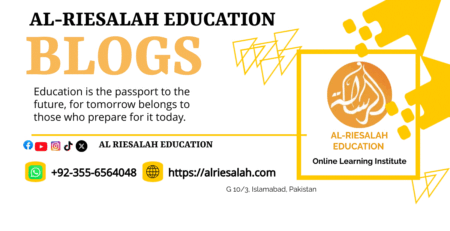Helping the Needy and Poor According to Islam
Introduction
Helping the needy and poor is a fundamental aspect of Islamic teachings, deeply rooted in compassion and empathy towards fellow human beings. Islam emphasizes the importance of charity and generosity as integral components of a believer’s faith. This article explores the various ways in which individuals can extend a helping hand to those in need, guided by the principles of Islam.
Understanding Zakat and Sadaqah
In Islam, Zakat and Sadaqah hold significant importance in assisting the less fortunate. Zakat, which is one of the Five Pillars of Islam, is a mandatory form of charity that every eligible Muslim must pay annually. It is calculated as a percentage of one’s wealth and possessions and is intended to purify one’s wealth while helping those in need. Sadaqah, on the other hand, refers to voluntary acts of charity that can be given at any time and in any amount. Both Zakat and Sadaqah play a crucial role in alleviating poverty and addressing the needs of the disadvantaged.
The Virtue of Charity
Charity holds a special place in Islam, with numerous verses in the Quran and sayings of Prophet Muhammad (peace be upon him) emphasizing its virtues. The act of giving is considered a means of purifying one’s soul and attaining closeness to Allah. It is a reflection of selflessness and compassion, traits highly praised in Islamic teachings.
Identifying the Needy
To effectively help the needy and poor, it is essential to identify and prioritize those who require assistance the most. Islam emphasizes the importance of providing aid to widows, orphans, the elderly, and those facing financial hardships. By recognizing and addressing the specific needs of individuals, one can ensure that assistance reaches those who need it most urgently.
Ways to Help
There are various ways in which individuals can help the needy and poor according to Islamic principles. These include:
1. Community Initiatives
Community-based programs and organizations play a vital role in providing support to the less fortunate. These initiatives may include food banks, shelters, and educational programs aimed at empowering individuals and families in need.
2. Educational Support
Education is a powerful tool for breaking the cycle of poverty. Providing educational opportunities to underprivileged children and adults can help them build a better future for themselves and their families.
3. Medical Assistance
Access to healthcare is essential for maintaining the well-being of individuals and communities. Offering medical assistance, such as free clinics or subsidized treatments, can greatly benefit those who cannot afford healthcare services.
4. Food and Shelter
Basic necessities such as food and shelter are fundamental human rights. Providing food aid, establishing homeless shelters, and supporting housing initiatives are effective ways to address the immediate needs of the poor and homeless.
5. Moral and Emotional Support
In addition to material assistance, providing moral and emotional support is equally important. Offering a listening ear, counseling services, and mentorship programs can help individuals navigate through difficult times and regain their confidence and self-esteem.
6. Volunteering Opportunities
Volunteering time and skills is a valuable way to contribute to the well-being of the community. Whether it’s tutoring children, serving meals at a soup kitchen, or participating in community clean-up efforts, volunteering allows individuals to make a positive impact and connect with those in need on a personal level.
7. Spreading Awareness
Raising awareness about poverty and its underlying causes is essential for fostering empathy and understanding within society. Through educational campaigns, advocacy efforts, and community outreach, individuals can help challenge stereotypes and misconceptions about the poor and promote empathy and compassion towards them.
Overcoming Barriers
While the desire to help the needy is commendable, there may be obstacles and challenges along the way. These could include logistical constraints, cultural barriers, or personal limitations. However, with determination, creativity, and collaboration, these barriers can be overcome, and meaningful assistance can be provided to those in need.
The Rewards of Helping
In Islam, the rewards for helping the needy and poor are immense. Not only does it fulfill a religious obligation, but it also brings about spiritual growth and personal fulfillment. The Quran states, “The likeness of those who spend their wealth in Allah’s way is as the likeness of a grain which grows seven ears, in every ear a hundred grains. Thus Allah multiplies the deeds of those who do good.” (Quran 2:261)
Conclusion
Helping the needy and poor according to Islam is not just a charitable act but a moral and religious obligation. By extending a helping hand to those in need, individuals embody the principles of compassion, empathy, and generosity that lie at the heart of Islamic teachings. Through various forms of assistance, from financial support to emotional encouragement, individuals can make a meaningful difference in the lives of the less fortunate, thereby fulfilling their duty as believers and contributing to the betterment of society as a whole.
Unique FAQs
- Is charity obligatory in Islam?
- Yes, charity is mandatory in Islam, with Zakat being one of the Five Pillars of Islam.
- What is the difference between Zakat and Sadaqah?
- Zakat is a mandatory form of charity calculated as a percentage of one’s wealth, while Sadaqah refers to voluntary acts of charity given at any time and in any amount.
- How can I identify individuals in need of assistance?
- Look for those facing financial hardships, widows, orphans,










Leave a Reply